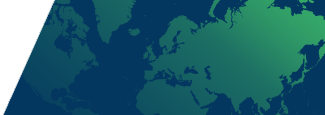

Burkina Faso
Synthesis
major macro economic indicators
| 2020 | 2021 | 2022 | 2023 (e) | 2024 (f) | |
|---|---|---|---|---|---|
| GDP growth (%) | 1.9 | 6.9 | 2.5 | 4.9 | 5.9 |
| Inflation (yearly average, %) | 1.9 | 3.9 | 14.1 | 3.0 | 2.3 |
| Budget balance (% GDP) | -5.1 | -7.4 | -10.4 | -7.8 | -6.7 |
| Current account balance (% GDP) | 4.1 | -0.4 | -5.2 | -3.6 | -2.7 |
| Public debt (% GDP) | 44.9 | 48.2 | 54.3 | 58.0 | 60.2 |
(e): Estimate (f): Forecast
| 5,9 |
STRENGTHS
- Major producer of gold (5th in Africa in 2021) and cotton (3rd in Africa in 2023)
- Member of the West African Economic and Monetary Union (ensuring the stability of the currency, the CFA franc, against the euro)
- Support from the international financial community (one of the first countries to benefit from the HIPC initiative)
WEAKNESSES
- Economy highly exposed to climatic hazards
- Vulnerability to changes in cotton and gold prices
- High dependence on outside help
- Weak electricity infrastructure
- Demographic pressure, very high poverty rate (32.7% in 2022) exacerbated by massive population displacements, very low human development index and critical food insecurity.
- A large informal sector and a poor business environment
- Presence of armed Islamist groups (foreign and domestic), particularly in the north and east of the country.
- Political instability: two coups d'état in 2022
Risk assessment
Growth subject to political and security instability
Economic growth has rebounded in 2023 and has been driven by agriculture and services. Cotton production, after being ravaged by an infestation of insects in 2022, has helped revitalise the agricultural sector (22.3% of GDP in 2022). The services sector (44.6% of GDP in 2022) has continued to recover, mainly due to ICTs and financial and insurance services. These improvements, together with the resurgence of gold production (78% of exports in 2021) after the reopening of mines closed for security reasons, and the renewal and allocation of new operating licences by the government, could enable growth to gain traction in 2024. However, this optimistic economic outlook remains subject to durably high levels of political and security instability, which will also continue to undermine investor confidence and limit private investment. Household consumption (61% of GDP) will be supported by much lower inflation. Inflation slowed sharply in 2023, supported by moderating commodity prices and the restrictive monetary policy of the BCEAO, whose main interest rate was raised to 3.25% in September 2023. This trend will continue in 2024, accompanied locally by an improved agricultural harvest, which should ease the pressure on food prices, and a durably restrictive monetary policy. Public consumption (20% of GDP) will continue to drive growth, on back of increased social and security spending.
Shrinking but persistent twin deficits
The budget deficit will moderate but will remain high and above the WAEMU community standard (3% of GDP). Against a backdrop of political instability, spending on the country's defence and security will remain high. However, this deficit will be mitigated by higher tax revenues, that will accompany more robust growth, and measures to broaden the tax base. The Extended Credit Facility (ECF) concluded with the IMF in June 2023, with a disbursement of USD 305 million over 4 years, will enable the country to continue its fiscal consolidation efforts, which have been hampered by the high level of social and security spending. The public deficit will mainly be financed by recourse to the regional bond market, the cost of which will be relatively higher, given the tighter financial conditions in the WAEMU, as well as bilateral and multilateral loans. Public debt, although deemed sustainable, will remain subject to political instability, which will weigh on public spending and weaken support from international donors. With limited sources of external financing, domestic debt will continue to dominate financing (45% of public debt in 2019, vs. 56% in 2022).
The current account deficit should narrow by 2024, in the wake of buoyant exports that will help widen the trade surplus. However, it will still be sustained by a deficit in the balance of services (mainly transport, which accounts for 5% of GDP), and the repatriation of profits by foreign companies (mainly in the mining sector). Persistent political and security instability will continue to limit FDI inflows and foreign aid.
The political context remains fragile in the run-up to the elections
Since 2015, insecurity in the Sahel due to the activity of armed jihadist groups affiliated to Al-Qaeda and the Islamic State organisation, has claimed several thousand victims and displaced more than 2 million people, according to the UN. After being concentrated in the north, regular attacks have been perpetrated throughout the entire country, 40% of which is controlled by Islamist groups, according to ECOWAS. After an initial military coup in January 2022, which led to the overthrow of President Kaboré by the military junta of the Patriotic Movement for Safeguard and Restoration (MPSR), and which was justified by the government's inability to contain the jihadist insurrection, Lieutenant-Colonel Damiba was in turn deposed in September of the same year and on the same grounds as his predecessor. The MPSR and the country have since been led by Captain Ibrahim Traoré, who has been appointed President of the Transition until the next elections, expected in July 2024. Doubts persist as to whether the electoral timetable will be respected, with the authorities unwilling to organise elections unless the security situation improves. In this context of transition, political instability will continue to prevail and will be exacerbated by the ever-present security issue. The government claimed to have foiled another coup attempt on 27 September 2023.
The country will be relying on regional cooperation in its fight against terrorism by strengthening ties with Mali and Niger. On 16 September 2023, the three military regimes formed the Alliance of Sahel States, a defensive alliance created following the threat of intervention by the Economic Community of West African States (ECOWAS) after the 26 July coup in Niger.
Diplomatic and military cooperation with Russia is gaining ground and, concomitantly, relations with Paris have steadily deteriorated since the first coup in 2022. Following the withdrawal of French forces in February 2023, the French government also announced the suspension of its development aid and budgetary support in August later the same year.
Last updated: October 2023


